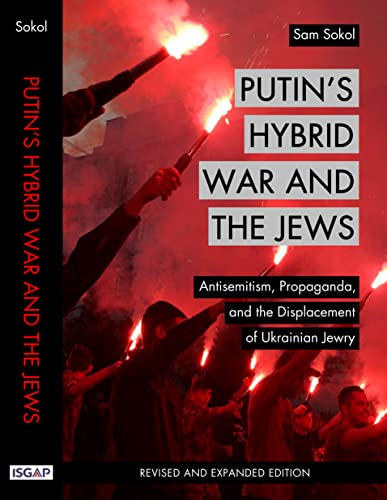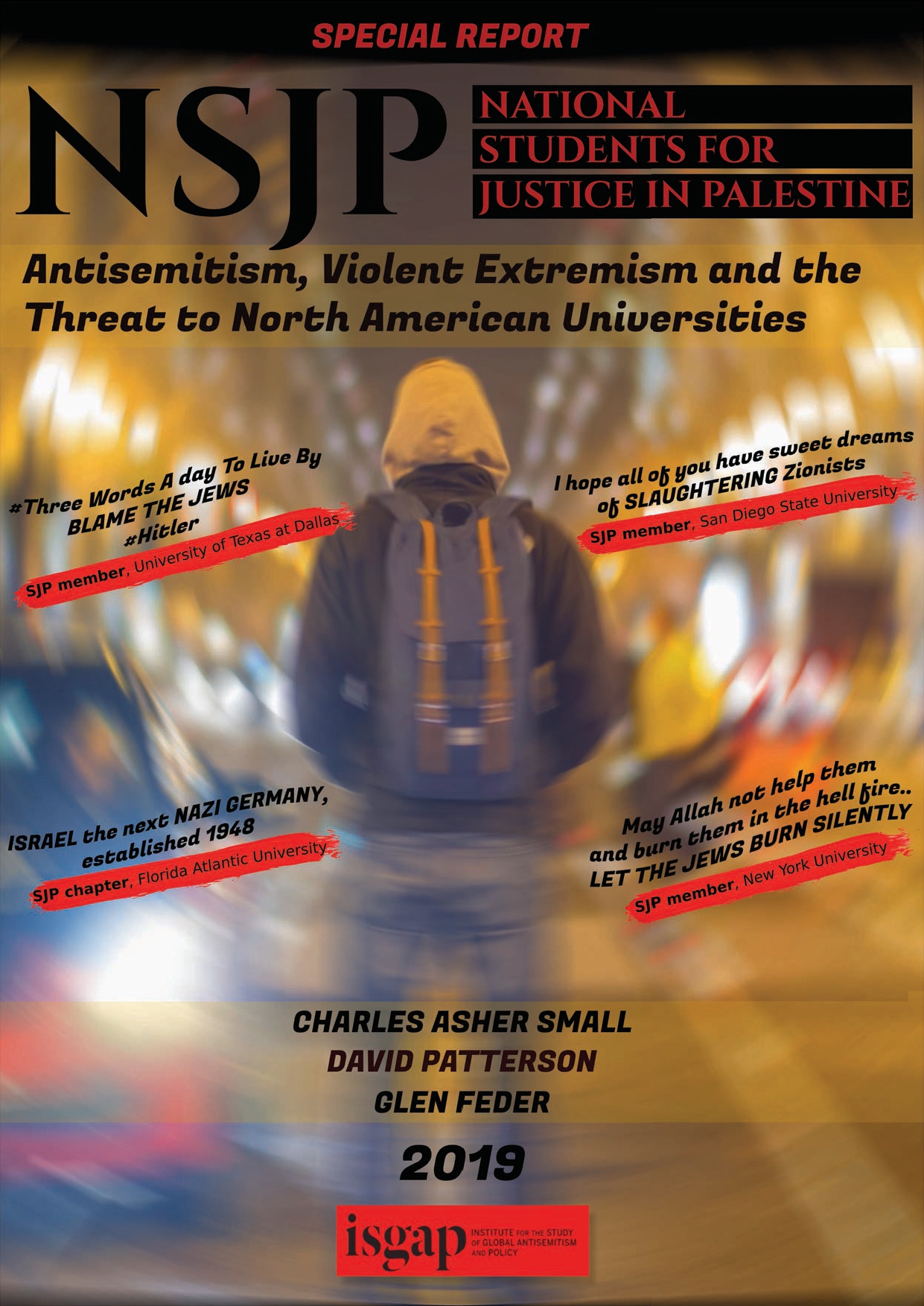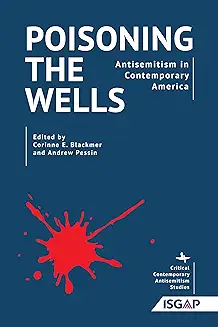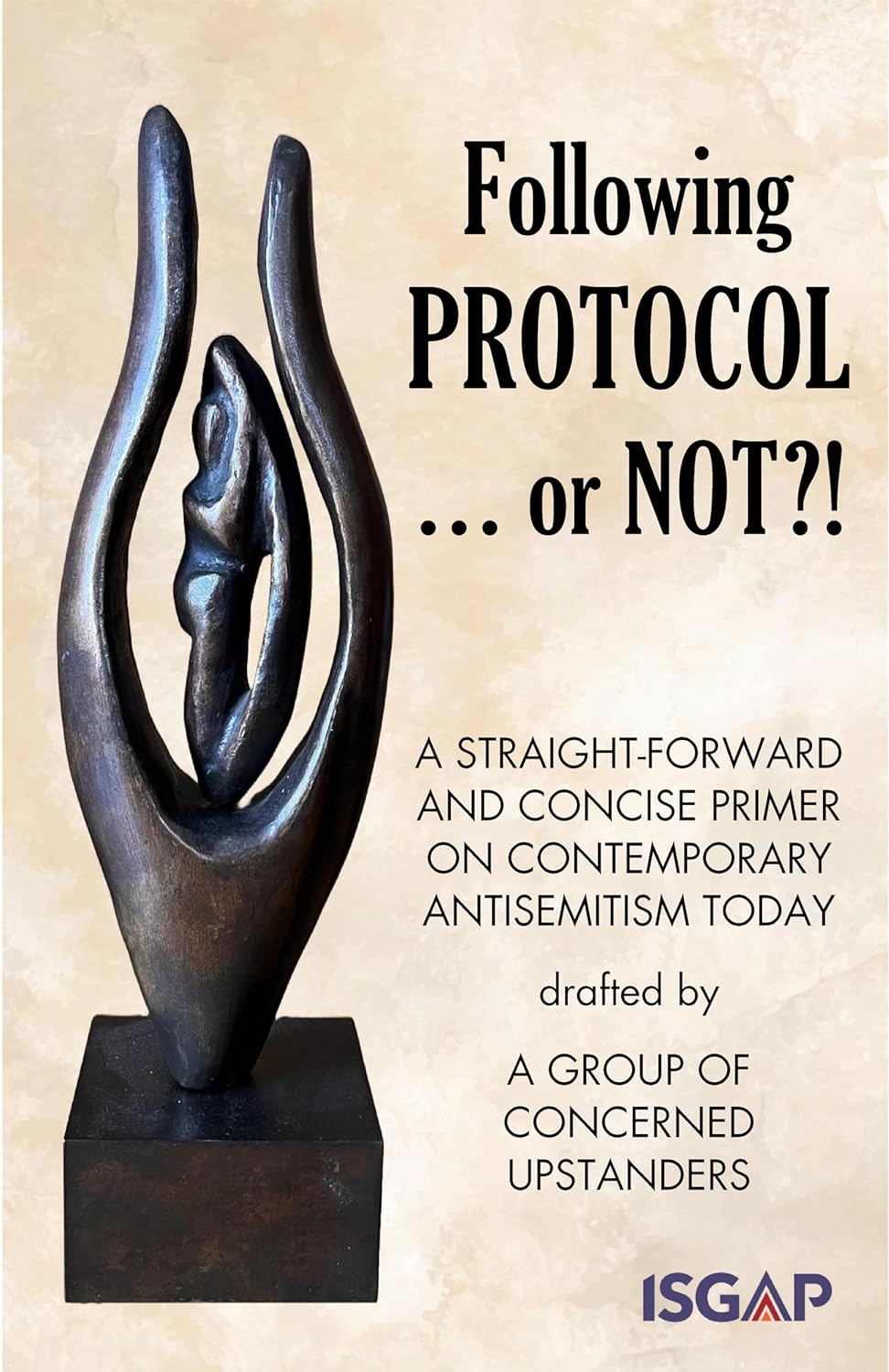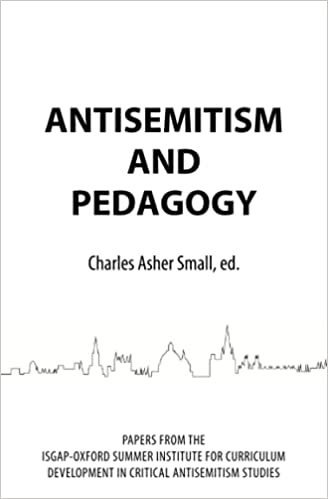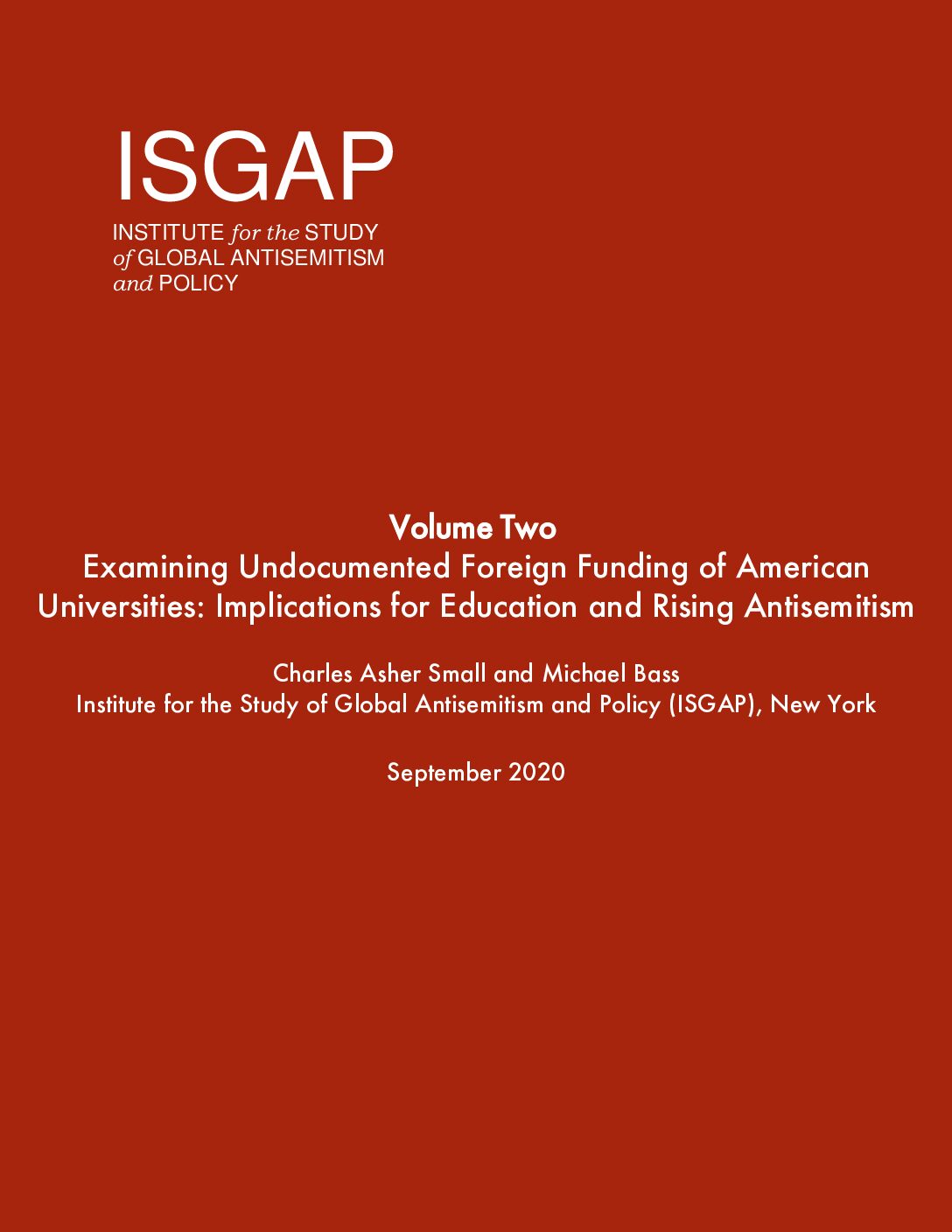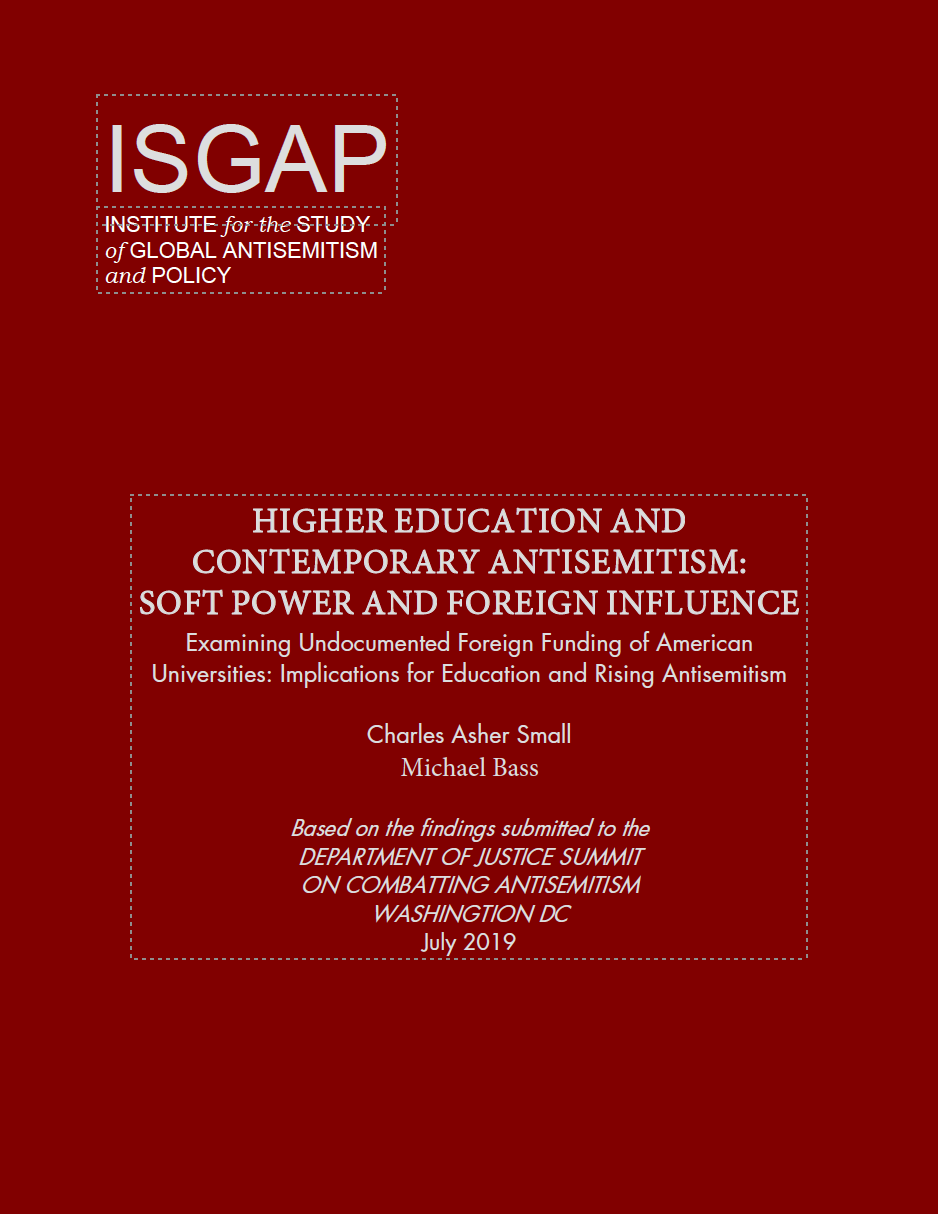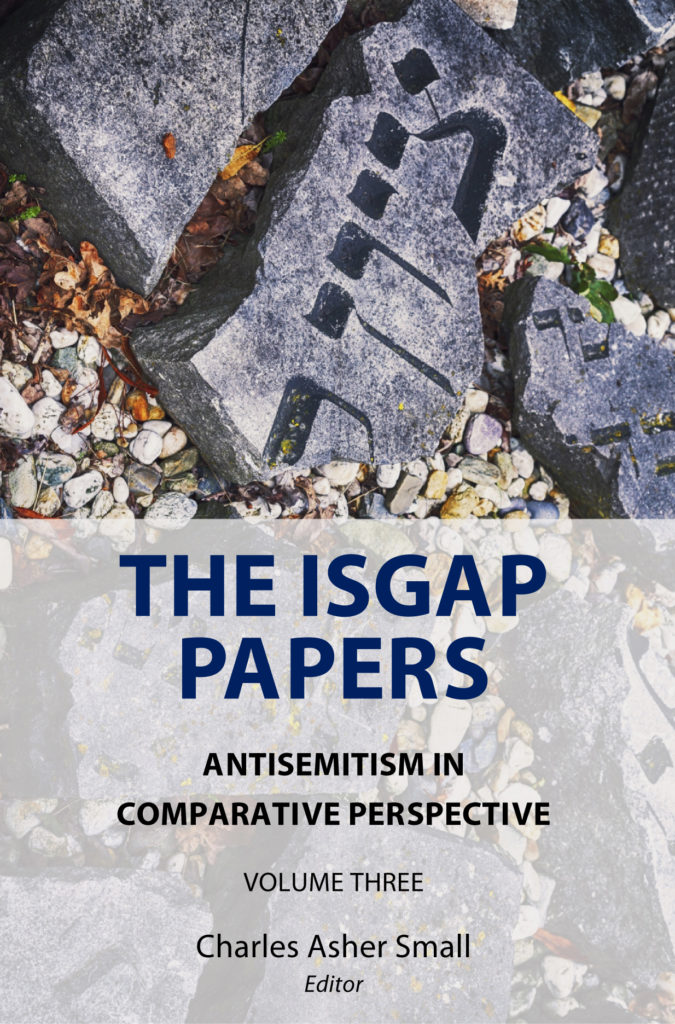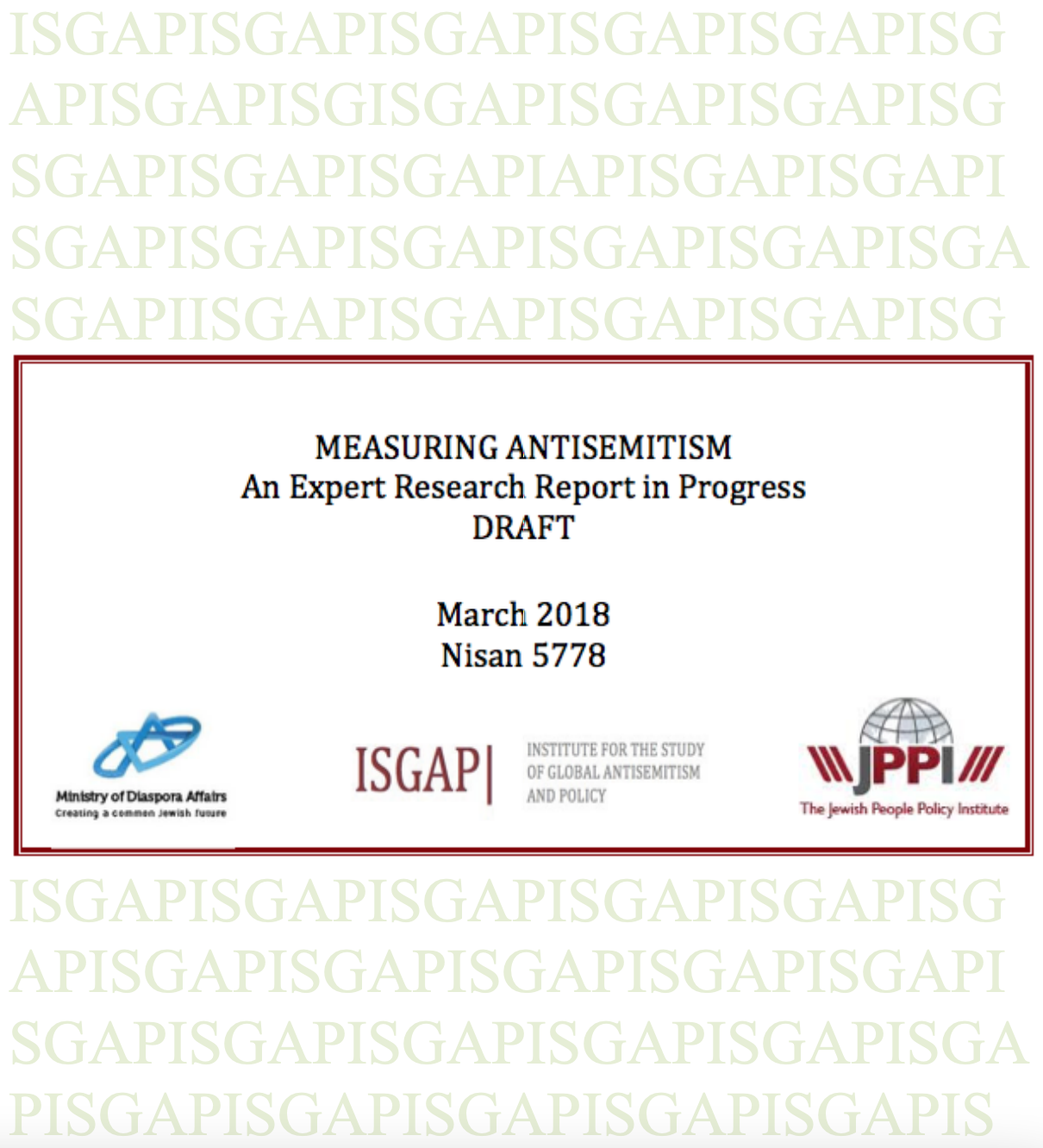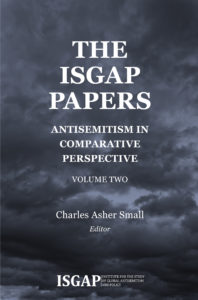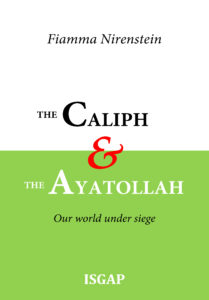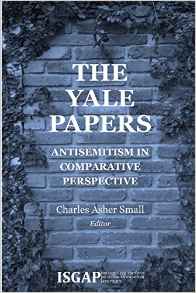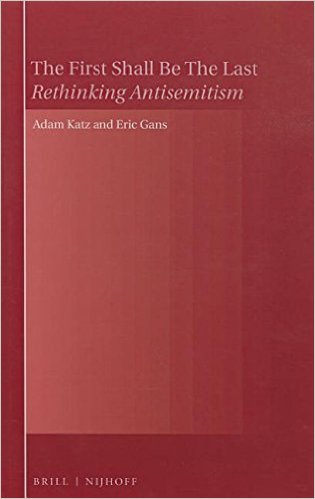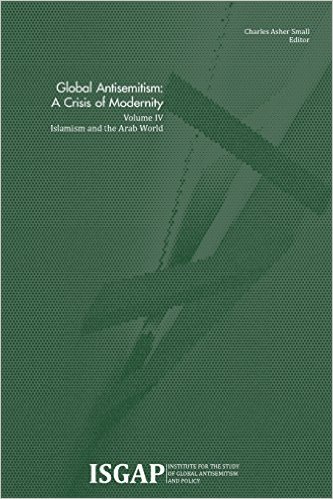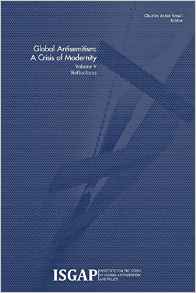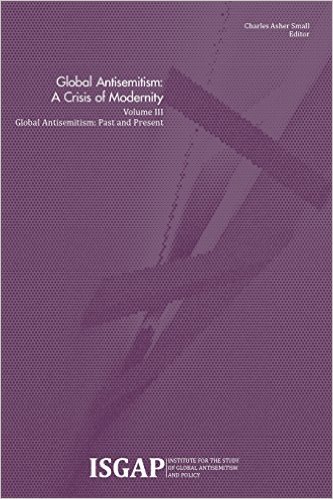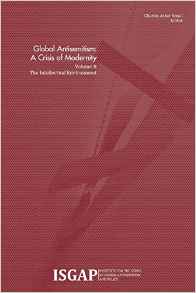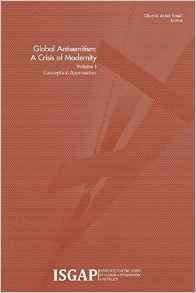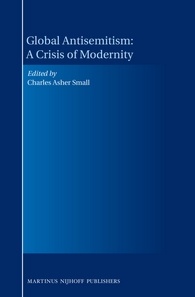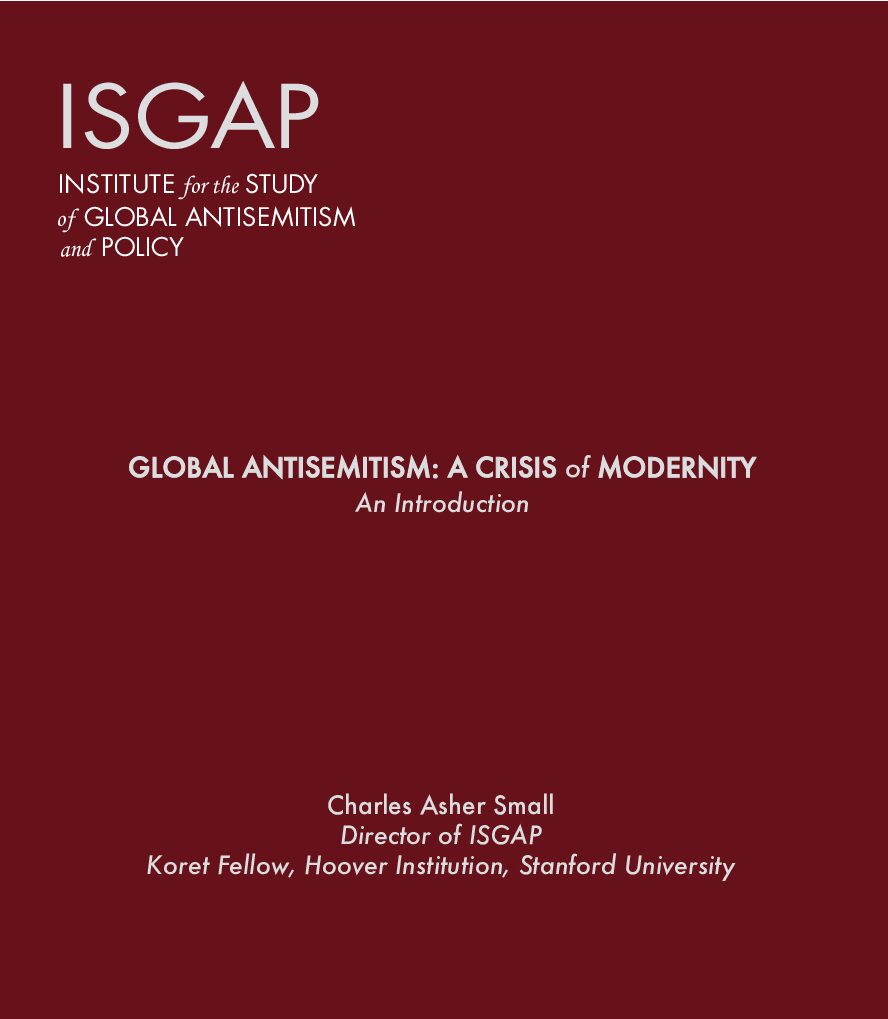Setting the Record Straight: Refuting the Common Lies Told About Israel by Andrew Pessin
This essay examines—and refutes—many of the major lies regularly disseminated
about Israel by its many detractors. It also shows that in many cases the reverse is
true: not only does Israel do the opposite of what is alleged, but it is Israel’s enemies
who are guilty of the charges leveled against it.
These lies individually and collectively exemplify the strategy of “The Big Lie,” a
strategy endorsed by Hitler and the Nazis, under which the propagandist
deliberately tells and repeats lies so enormous that people are not only inclined to
believe them—falsely thinking that no one could lie so baldly and that the lie must
therefore be true—but even to continue believing them in the face of
counterevidence demonstrating their falsehood.
Putin’s Hybrid War and the Jews: Antisemitism, Propaganda, and the Displacement of Ukrainian Jewry (2022) – Revised and Expanded Edition
Based on journalist Sam Sokol’s on-the-ground reporting during the first years of the Donbas War, Putin’s Hybrid War and the Jews chronicles the collapse of Jewish life in the regions of eastern Ukraine occupied by Russian-backed separatist militias in 2014. Told through the eyes of refugees, politicians, soldiers, and aid workers, it is a rich account of […]
NSJP Report: The Contextualization of the National Students for Justice in Palestine (NSJP)
Charles Asher Small, Director, ISGAP;
David Patterson, Hillel A. Feinberg Chair in Holocaust Studies,
Ackerman Center for Holocaust Studies, University of Texas at Dallas
Glen Feder
Foreword by Natan Sharansky, Chair ISGAP
Hate Speech and Academic Freedom: The Antisemitic Assault on Basic Principles
University campuses in North America and Europe are deeply polarized over the character of the Jewish state and the meaning of the Israeli-Palestinian conflict. This book reveals the damage that antisemitism does to the identity of Jewish students, staff, and faculty. It is the first book to ask what the impact has been on the fundamental principles the academy relies on for its identity—academic freedom, free speech rights, standards for hiring or firing faculty members and administrators, and the ethics of academic conduct and debate. While Hate Speech and Academic Freedom details the chilling challenges we face, it also offers policies to use in meeting them, concluding with detailed chapters on how to use the IHRA Definition of Antisemitism.
Poisoning the Wells: Antisemitism in Contemporary America
In twenty-first century America, antisemitism is on the rise, especially on the extreme left, the radical right, and within political Islamism. Expressions of this oldest hatred are also increasingly prevalent in popular culture, where they are spread by politicians, entertainers and celebrities, the media, social justice activists, and religious leaders, as well as in universities, in schools, on the streets, and even, in some instances, by Jews. Once, Jews regarded the United States as die Goldene Medina–the Golden Land–where they could escape persecution and finally be free. However, this dream has not been realized and major trends are moving in the opposite direction. In Poisoning the Wells, leading scholars analyze contemporary antisemitism in the United States.
Following PROTOCOL… or NOT?!: A straight-forward and concise primer on contemporary antisemitism today
Following PROTOCOL… or NOT?! is a straight-forward and concise “primer” on contemporary antisemitism. Given the ever-increasing complexity of contemporary antisemitism and the rapid escalation of related world events, this quick and easy read explains what people need to know about contemporary antisemitism today: where it comes from, how it manifests, and why it ought to matter to everyone. In plain language, it bridges the widespread gap in historical knowledge and everyday understanding that contributes to the continued ignorance that allows contemporary antisemitism to grow.
The narrative unfolds from profound discussions ignited by two friends endeavoring to reconcile thought and action within their respective—and our shared—worlds. The overarching goal was to deepen our understanding of and actively combat the growing scourge of contemporary antisemitism. The project gained substantial form and substance through the invaluable contributions of numerous scholars associated with ISGAP. Their expertise, experience, and passionate commitment have played a pivotal role in shaping and developing this endeavor, making a positive impact in the present moment. Furthermore, we acknowledge the insights garnered from AI bots such as ChatGPT and Perplexity, underscoring the collaborative and interdisciplinary nature of this project.
Antisemitism and Pedagogy: Papers from the ISGAP-Oxford Summer Institute for Curriculum Development in Critical Antisemitism Studies (2021)
Founded in 2004, the Institute for the Study of Global Antisemitism and Policy (ISGAP) is the first interdisciplinary research center dedicated to the study of antisemitism to be established in North America. Its mission is to explore antisemitism from a wide range of approaches and perspectives within an academic framework, including the study of such […]
Volume II – Examining Undocumented Foreign Funding of American Universities: Implications for Education and Rising Antisemitism by Charles Asher Small and Michael Bass (2020)
VOLUME II Examining Undocumented Foreign Funding of American Universities: Implications for Education and Rising Antisemitism September 2020 ISBN 978-0-9827894-6-9 INTRODUCTION In July 2019 at the Department of Justice (DOJ) in Washington, DC, the Institute for the Study of Global Antisemitism and Policy (ISGAP) presented a summary of the findings of a research project started in […]
Higher Education and Contemporary Antisemitism: Soft Power and Foreign Influence – Examining Undocumented Foreign Funding of American Universities, Implications for Education and Rising Antisemitism by Charles Asher Small and Michael Bass (2019)
HIGHER EDUCATION AND CONTEMPORARY ANTISEMITISM: SOFT POWER AND FOREIGN INFLUENCE Examining Undocumented Foreign Funding of American Universities, Implications for Education and Rising Antisemitism Dr. Charles Asher Small Michael Bass Based on findings submitted to the DEPARTMENT OF JUSTICE SUMMIT ON COMBATING ANTISEMITISM, WASHINGTON DC, JULY 2019 The Institute for the Study of Global Antisemitism and […]
Putin’s Hybrid War and the Jews: Antisemitism, Propaganda, and the Displacement of Ukrainian Jewry by Sam Sokol (2019)
Drawn from journalist Sam Sokol’s experiences covering the Ukraine Crisis, Putin’s Hybrid War and the Jews chronicles the collapse of Jewish life in the regions of eastern Ukraine occupied by Russian-backed separatist militias in 2014 and the subsequent refugee crisis that saw more than 32,000 Ukrainians flee to Israel. Based on extensive interviews and told through the eyes of refugees, politicians, soldiers, and aid workers, this book is a rich account of both the ravages of armed conflict and the Kremlin’s attempts to weaponize antisemitism as part of its hybrid war against Ukraine.
Industry of Lies: Media, Academia, and the Israeli-Arab Conflict by Ben-Dror Yemini (2017)
The Industry of Lies is one of the greatest frauds of recent decades – a fraud of historic, even epic, proportions. When almost half of all Europeans believe that Israel treats the Palestinians just like the Nazis treated the Jews, when leading politicians assert that the Arab-Israeli conflict is the central cause of violence in the world, and when prominent intellectuals argue that Israel is an apartheid state, the unfortunate reality is that the lies are winning.
As a result, Israel has become the devil incarnate in the eyes of many otherwise good and reasonable people – people who genuinely want to see peace but inadvertently contribute to the continuation of the Israeli-Arab conflict. The tragedy is that they are neither helping the Palestinians nor promoting agreement or reconciliation. Instead, they lend legitimacy to the fallacious claims of the most extreme activists, empowering not moderates but the worst of the radicals who have no interest in attaining peace.
Israel is not free from flaws. However, this book draws a clear distinction between legitimate criticism and the industry of lies that has emerged from two unlikely sources – the media and academia – undermining their reputation as bastions of truth and knowledge. Ben-Dror Yemini presents an in-depth analysis of the many inaccurate and malicious accusations leveled against Israel and refutes them one by one in this thought-provoking and well-researched volume that invites us to rethink the causes and consequences of the Israeli-Arab conflict.
The ISGAP Papers: Antisemitism In Comparative Perspective – Volume Three by Charles Asher Small (2018)
The Antisemitism in Comparative Perspective seminar series of the Institute for the Study of Global Antisemitism and Policy (ISGAP) continues to generate a steady flow of high-quality presentations and papers on a wide range of topics relating to antisemitism. Between 2015 and 2017, ISGAP hosted seminars at numerous academic institutions, including Harvard University, McGill University, Stanford University, Columbia University Law School, the University of Miami, Sapienza University (Rome), Sorbonne University (Paris), the National University of Kyiv, and the American College of Greece (Athens). The present volume―a worthy follow-up to The ISGAP Papers: Antisemitism in Comparative Perspective, Volume Two (2016)―contains a selection of papers presented during this period. Like the seminars on which they are based, these papers cover topics that have profound implications for our understanding of contemporary antisemitism, its impact on Jews and non-Jews, and our efforts to combat this irrational yet enduring prejudice.
Measuring Antisemitism Project (2018)
How can antisemitism be measured comparatively across countries and in social media? In Paris on September 20, 2016, leading scholars, experts and practitioners from Europe, North America and Israel held a closed consultation to confront this question. Since then, the scholars involved have produced this draft Report. The objective of this project is to create an effective multi-layered “tool” to measure antisemitism effectively.
The lack of such a tool has been felt for some time. The European Union Fundamental Rights Agency noted in a Working Paper on Antisemitism in 2012 that “Continued and sustained efforts at the national and international levels, as well as at the level of civil society, need to be exerted if data collection on the matter is to be improved. The ready and regular availability of robust and comparable data on the situation of antisemitism in the EU would enable policymakers and relevant stakeholders to develop targeted interventions to combat antisemitism.”
This innovative project to create an internationally applicable measurement tool was initiated by ISGAP (The Institute for the Study of Global Antisemitism and Policy), and is supported by the Israel Ministry for Diaspora Affairs. The Paris meeting was graciously facilitated by CRIF. Professor Steven W. Popper of the JPPI (The Jewish People Policy Institute) has served as lead scholar and author. We anticipate that based on this draft Report, the measurement tool will be further refined and implemented to provide an integrated method greatly needed by international agencies to address a pressing problem felt by Jewish communities.
The ISGAP Papers: Antisemitism In Comparative Perspective – Volume Two by Charles Asher Small (2016)
The “Antisemitism in Comparative Perspective” seminar series of the Institute for the Study of Global Antisemitism and Policy (ISGAP) continues to generate a steady flow of high-quality presentations and papers on a wide range of topics relating to antisemitism. Between 2012 and 2014, ISGAP hosted seminars at Harvard University, McGill University, Columbia University Law School, Fordham University’s Lincoln Center Campus in New York, the Hoover Institution at Stanford University, the University of Miami, Sapienza University (Rome), and other academic institutions. The present volume―a worthy follow-up to The Yale Papers: Antisemitism in Comparative Perspective (2015)―contains a selection of papers presented during this period. Like the seminars on which they are based, these papers cover topics that have profound implications for our understanding of contemporary antisemitism, its impact on Jews and non-Jews, and our efforts to combat this irrational yet enduring prejudice.
The Caliph and the Ayatollah: Our World Under Siege Fiamma Nirenstein (2016)
An earthquake of shifting alliances and contradictory interests and an unprecedented wave of violence show that the old lenses through which we once viewed and analyzed the Middle East have rapidly become blurred and inadequate to follow the course of events.
What generates various Sunni and Shiite ideologies? Is the West aware of the dangers it faces between fanaticism of Salafi terrorism and the unstoppable expansionism of the ayatollah? And, above all, will it be able to defend itself?
While exploring the genesis of this gloomy scenario, this book underlines that there may be a glimpse of light. This is because Arab countries are now discovering that they have a shared interest-both with each other and the West-to uproot extremist Shiite and Sunni terror. Paradoxically, the history of the Middle East and the relations between the Western world and Islam have never proved so open to a turning point as they do today.
The Yale Papers: Antisemitism in Comparative Perspective by Charles Asher Small (2015)
Between 2006 and 2011, the Institute for the Study of Global Antisemitism and Policy (ISGAP) established and sponsored the Yale Initiative for the Interdisciplinary Study of Antisemitism (YIISA), the first academic research center dedicated to the study of antisemitism based at a North American university. During its mandate, YIISA hosted a successful graduate and post-graduate fellowship program, research projects, and a high-level interdisciplinary seminar series at Yale University. The present volume – The Yale Papers: Antisemitism in Comparative Perspective – includes a selection of the papers presented in the framework of this seminar series, as well as several other working papers, conference papers, and lectures commissioned by or submitted to YIISA by eminent scholars and researchers from around the world. In addition to providing a fascinating overview and scholarly analysis of some of the many facets of historical and contemporary antisemitism around the globe, this volume stands as a solid and incontrovertible testament to the abundant – and, above all, productive – academic activity that characterized YIISA’s truncated tenure at Yale University.
The First Shall Be the Last: Rethinking Antisemitism by Adam Katz and Eric Gans (2015)
At a time when there is an evident socio-economic, political and cultural structural shift in the processes and practices associated with contemporary manifestations of antisemitism globally, it is important to explore its origins and examine whether the circumstances of its genesis can shed light on its longevity and adaptability. Few scholars are more qualified to undertake such a task than the authors of this volume, who have done so much to develop and advance the discipline of generative anthropology. In this study their groundbreaking hypothesis on the singular event that gave rise to human language and by extension human culture finds a fascinating parallel in the Jewish people’s discovery/invention of monotheism, giving rise to historical resentments and hostility. The volume will be of interest to scholars working in the field of anti-discrimination and antisemitism, as well as human rights scholars and cultural historians in general.
Global Antisemitism: A Crisis of Modernity Volume IV: Islamism and the Arab World (2014)
These volumes present a selection of the papers presented at the “Global Antisemitism: A Crisis of Modernity” conference organized by YIISA/ISGAP at Yale University in August 2010.
Volume IV: Islamism and the Arab World examines a form of antisemitism that has become especially virulent in recent times. It is also a form of antisemitism whose origins and manifestations are perhaps less well-known to academics and policy-makers due to the supposedly controversial nature of this topic. This volume includes papers from some of the leading experts in this area.
Global Antisemitism: A Crisis of Modernity Volume V: Reflections (2014)
These volumes present a selection of the papers presented at the “Global Antisemitism: A Crisis of Modernity” conference organized by YIISA/ISGAP at Yale University in August 2010.
Volume V: Reflections comprises various “reflections” that were presented at the conference by a number of well-respected observers, academics, and practitioners. They provide insightful observations and important analysis but are not presented in the form of classic academic papers.
Global Antisemitism: A Crisis of Modernity Volume III: Global Antisemitism: Past and Present (2014)
These volumes present a selection of the papers presented at the “Global Antisemitism: A Crisis of Modernity” conference organized by YIISA/ISGAP at Yale University in August 2010.
Volume III: Global Antisemitism: Past and Present examines the manifestations and impacts of antisemitism in various regional contexts. Some of the papers focus on historical cases, while others focus on recent or contemporary matters.
Global Antisemitism: A Crisis of Modernity Volume II: The Intellectual Environment (2014)
These volumes present a selection of the papers presented at the “Global Antisemitism: A Crisis of Modernity” conference organized by YIISA/ISGAP at Yale University in August 2010.
Volume II: The Intellectual Environment deals with matters of antisemitism and the intellectual environment. The papers in this volume focus on the treatment of Israel in the media and the study of antisemitism in the academy.
Global Antisemitism: A Crisis of Modernity Volume I: Conceptual Approaches (2014)
These volumes present a selection of the papers presented at the “Global Antisemitism: A Crisis of Modernity” conference organized by YIISA/ISGAP at Yale University in August 2010.
Volume I: Conceptual Approaches includes papers that approach antisemitism from a wide range of conceptual perspectives and scholarly disciplines.
Global Antisemitism: A Crisis of Modernity by Charles Asher Small (2013)
This volume contains a selection of essays based on papers presented at a conference organized at Yale University and hosted by the Yale Initiative for the Interdisciplinary Study of Antisemitism (YIISA) and the International Association for the Study of Antisemitism (IASA), entitled “Global Antisemitism: A Crisis of Modernity.”
Global Antisemitism: A Crisis of Modernity – An Introduction by Charles Asher Small (2013)
In August 2010, the largest-ever academic conference on the study of antisemitism took place at Yale University. The conference, entitled “Global Antisemitism: A Crisis of Modernity,” was hosted and organized by the Yale Initiative for the Interdisciplinary Study of Antisemitism (YIISA) and the International Association for the Study of Antisemitism (IASA). The conference featured over 100 speakers from more than 20 countries from around the world. They included recent graduates at the beginning of their academic careers, experienced academics, and leading senior scholars who have dedicated their intellectual pursuits to the study of antisemitism, as well as legal experts, practitioners and others. More than 600 people attended the conference, including undergraduate and graduate students, scholars from many universities, including Yale University, practitioners and members of non-governmental organizations, civil servants and diplomats interested in the policy implications of the subject matter, and members of the general public. This volume presents a selection of the many important and challenging papers presented at the conference. It is one of five volumes reflecting the interdisciplinary nature of the conference as well as the diverse nature of the subject of antisemitism in general.


